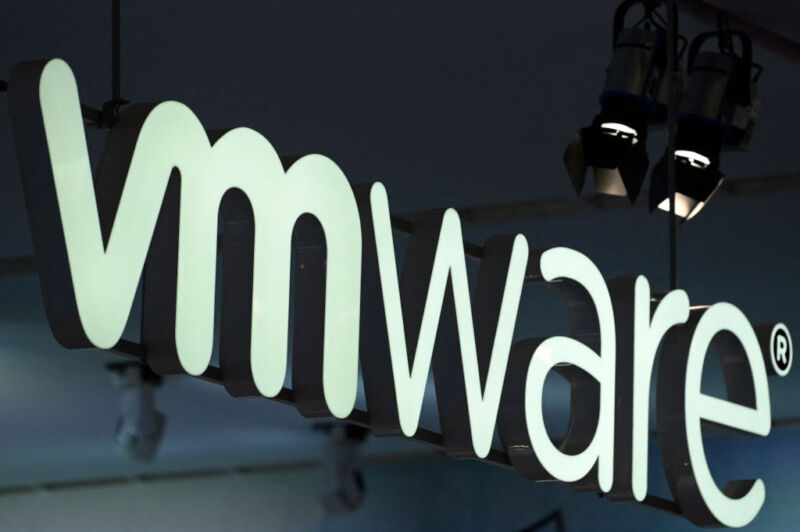
Broadcom has moved forward with plans to transition VMware, a virtualization and cloud computing company, into a subscription-based business. As of December 11, it no longer sells perpetual licenses with VMware products. VMware, whose $61 billion acquisition by Broadcom closed in November, also announced on Monday that it will no longer sell support and subscription (SnS) for VMware products with perpetual licenses. Moving forward, VMware will only offer term licenses or subscriptions, according to its VMware blog post.
VMware customers with perpetual licenses and active support contracts can continue using them. VMware “will continue to provide support as defined in contractual commitments,” Krish Prasad, senior vice president and general manager for VMware’s Cloud Foundation Division, wrote. But when customers’ SnS terms end, they won’t have any support.
Broadcom hopes this will force customers into subscriptions, and it’s offering “upgrade pricing incentives” that weren’t detailed in the blog for customers who switch from perpetual licensing to a subscription.
These are the products affected, per Prasad’s blog:
- VMware Aria Automation
- VMware Aria Suite
- VMware Aria Operations
- VMware Aria Operations for Logs
- VMware Aria Operations for Networks
- VMware Aria Universal
- VMware Cloud Foundation
- VMware HCX
- VMware NSX
- VMware Site Recovery Manager
- VMware vCloud Suite
- VMware vSAN
- VMware vSphere
Subscription-based future
Broadcom is looking to grow VMware’s EBITDA (earnings before interest, taxes, depreciation, and amortization) from about $4.7 billion to about $8.5 billion in three years, largely through shifting the company’s business model to subscriptions, Tom Krause, president of the Broadcom Software Group, said during a December 7 earnings call, per Forbes.
“This shift is the natural next step in our multi-year strategy to make it easier for customers to consume both our existing offerings and new innovations. VMware believes that a subscription model supports our customers with the innovation and flexibility they need as they undertake their digital transformations,” VMware’s blog said.
With changes effective immediately upon announcement, the news might sound abrupt. However, in May, soon after announcing its plans to acquire VMware, Broadcom CEO Hock Tan signaled a “rapid transition” to subscriptions.
At the time, Tan pointed to the importance of maintaining current VMware customers’ happiness, as well as leveraging the VMware sales team already in place. However, after less than a month of the deal’s close, reports point to concern among VMWare customers and partners.
Customer and partner concerns
VMware’s blog said “the industry has already embraced subscription as the standard for cloud consumption.” For years, software and even hardware vendors and investors have been pushing IT solution provider partners and customers toward recurring revenue models. However, VMware built much of its business on the perpetual license model. As noted by The Stack, VMware in February noted that perpetual licensing was the company’s “most renowned model.”
VMware’s blog this week listed “continuous innovation” and “faster time to value” as customer benefits for subscription models but didn’t detail how it came to those conclusions.
“Predictable investments” is also listed, but it’s hard to imagine a more predictable expense than paying for something once and having supported access to it indefinitely (assuming you continue paying any support costs). Now, VMware and its partners will be left convincing customers that their finances can afford a new monthly expense for something they thought was paid for. For Broadcom, though, it’s easier to see the benefits of turning VMware into more of a reliable and recurring revenue stream.
Additionally, Broadcom’s layoffs of at least 2,837 VMware employees have brought uncertainty to the VMware brand. A CRN report in late November pointed to VMware partners hearing customer concern about potential price raises and a lack of support. C.R. Howdyshell, CEO of Advizex, which reportedly made $30 million in VMware-tied revenue in 2022, told the publication that partners and customers were experiencing “significant concern and chaos” around VMware sales. Another channel partner noted to CRN the layoff of a close VMware sales contact.
But Broadcom has made it clear that it wants to “complete the transition of all VMware by Broadcom solutions to subscription licenses,” per Prasad’s blog.
The company hopes to convince skeptical channel partners that they’ll see the way, too. VMware, like many tech companies urging subscription models, pointed to “many partners” having success with subscription models already and “opportunity for partners to engage more strategically with customers and deliver higher-value services that drive customer success.”
However, because there’s no immediate customer benefit to the end of perpetual licenses, those impacted by VMware’s change in business strategy have to assess how much they’re willing to pay to access VMware products moving forward.
